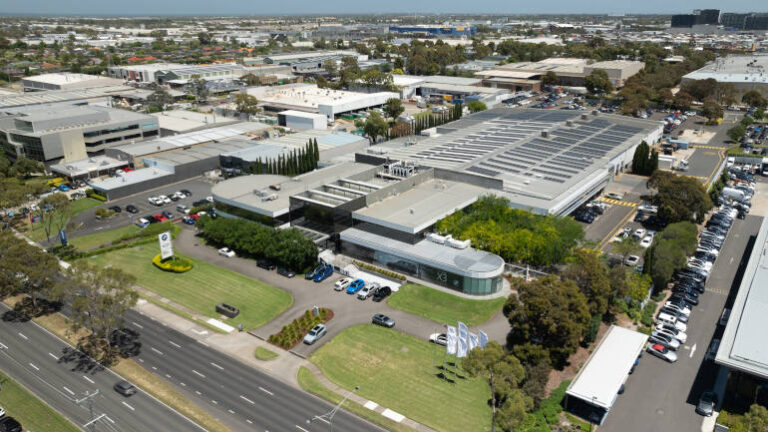BMW Group Australia is setting a benchmark for corporate sustainability with its recent upgrades at the Melbourne headquarters. By significantly expanding its solar panel array and increasing the adoption of battery electric vehicles (BEVs) in its fleet, the company demonstrates a robust and forward-thinking approach to reducing carbon emissions.
Scaling Solar Energy Production
The solar panel installation at BMW’s headquarters has seen a dramatic increase, expanding from 200 panels to an impressive 1,109. This upgrade boosts the system’s capacity to 500 kW, generating approximately 600 megawatt-hours (MWh) annually. Such capacity is pivotal in powering the site’s 26 EV charging bays, which now rely entirely on solar energy. This move is a practical demonstration of integrating renewable energy with fleet operations.
A Fleet Transition Model
BEVs now make up 44% of BMW Group Australia’s company fleet, a 33% increase compared to the previous year. This shift aligns with a broader trend in customer adoption; BMW BEV registrations have surged to 7,000 in 2024, representing a 163% increase from 2023. MINI BEV registrations have also nearly doubled.
The dual focus on internal fleet transformation and customer adoption highlights a comprehensive approach. Organisations looking to transition their fleets to electric vehicles can emulate BMW’s integration of renewable energy and increased EV charging infrastructure as a foundation for success.
Sustainability Beyond Vehicles
BMW Group Australia’s sustainability initiatives extend to waste and energy management within its operations. Efforts include eliminating single-use takeaway cups, introducing plant-based water bottles that cut emissions by 74%, and transitioning to glass beverage containers. These practices embody the global BMW Group ethos of “Rethink, Reduce, Reuse, Recycle.”
Engaging Dealer Partners
The sustainability mission is not confined to headquarters. BMW’s dealer network has adopted initiatives such as recycling general waste, utilising rooftop solar systems, and implementing water recycling solutions. This collaborative approach ensures the sustainability strategy resonates across the value chain, making a collective impact.
Commitment to Global Goals
The strides made by BMW Group Australia complement the company’s global sustainability goals. By 2030, the BMW Group aims to reduce lifecycle emissions per vehicle by at least 40% compared to 2019. This ambitious target underscores the long-term vision that defines BMW’s corporate strategy.
Lessons for Fleet Transition
BMW Group Australia’s holistic strategy provides a robust framework for organisations planning their fleet transition to EVs. Key takeaways include:
- Infrastructure Investment: Expanding solar capacity to ensure energy self-sufficiency.
- Gradual BEV Integration: Increasing the percentage of BEVs in the fleet incrementally to align with infrastructure capabilities.
- Employee and Partner Engagement: Encouraging internal and partner networks to adopt sustainable practices.
- Alignment with Global Goals: Embedding sustainability within corporate strategy to achieve measurable outcomes.
BMW Group Australia’s initiatives exemplify how businesses can lead in sustainability. By combining renewable energy with an ambitious fleet transition plan, the company has established itself as a model for others. This strategic alignment of infrastructure, innovation, and global goals ensures a sustainable future while addressing immediate operational needs.






